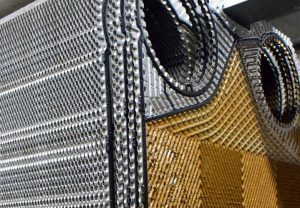 Before the advent and widespread adoption of modern heat exchangers, companies most often relied on older cooling solutions to meet their electrical thermal management needs. When it came to preventing electrical overheating within their various electrical enclosures, solutions like air conditioning and air compressing units were the most frequently implemented ones. Today, however, more companies across virtually industry are taking advantage of more advanced heat exchangers, which provide high-performance electrical cooling for most applications with significantly less energy and hassle. (more…)
Before the advent and widespread adoption of modern heat exchangers, companies most often relied on older cooling solutions to meet their electrical thermal management needs. When it came to preventing electrical overheating within their various electrical enclosures, solutions like air conditioning and air compressing units were the most frequently implemented ones. Today, however, more companies across virtually industry are taking advantage of more advanced heat exchangers, which provide high-performance electrical cooling for most applications with significantly less energy and hassle. (more…)
Managing Waste Heat in Modern Industries
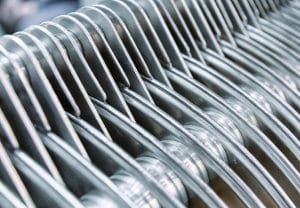 Dealing with electrical waste heat in an efficient and consistent manner is a necessary burden for companies that utilize technology. These days, that’s virtually every company across every industry, and the more technology dominates each industry, the more important it is to implement methods of maintaining it properly. That includes implementing cooling solutions that prevent the applications from overheating – a process that was traditionally left to air conditioners or air compressors. Today, however, increasingly more companies are relying on more advanced thermal management solutions, such as heat exchangers, to manage waste heat in a more efficient and cost-effective manner. (more…)
Dealing with electrical waste heat in an efficient and consistent manner is a necessary burden for companies that utilize technology. These days, that’s virtually every company across every industry, and the more technology dominates each industry, the more important it is to implement methods of maintaining it properly. That includes implementing cooling solutions that prevent the applications from overheating – a process that was traditionally left to air conditioners or air compressors. Today, however, increasingly more companies are relying on more advanced thermal management solutions, such as heat exchangers, to manage waste heat in a more efficient and cost-effective manner. (more…)
Why Eco-Friendly Companies Rely on Better Thermal Management
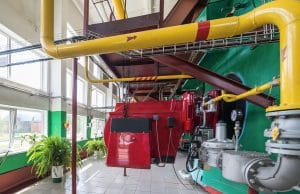 For companies in most industries, their continued, sustained growth depends on several different factors. Efficiency, productivity, and controlled overhead costs are just a few such factors, and they’re highly influenced by a company’s use of advanced technologies in multiple applications. In most cases, these technologies also help companies better achieve another important goal – lowering their environmental footprints. To achieve this, advanced applications often rely on more natural thermal management processes, such as transferring electrical waste heat instead of creating and circulating cold air to try and control it. (more…)
For companies in most industries, their continued, sustained growth depends on several different factors. Efficiency, productivity, and controlled overhead costs are just a few such factors, and they’re highly influenced by a company’s use of advanced technologies in multiple applications. In most cases, these technologies also help companies better achieve another important goal – lowering their environmental footprints. To achieve this, advanced applications often rely on more natural thermal management processes, such as transferring electrical waste heat instead of creating and circulating cold air to try and control it. (more…)
What Makes Heat Exchangers Different from Older Solutions?
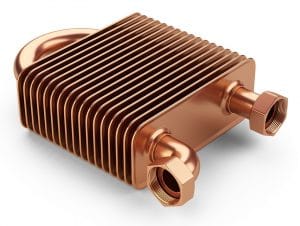 In most industries, companies have traditionally relied on electrical cooling solutions such as air conditioners and air compressors. Such solutions were the most common methods of generating cold air and utilizing it to prevent overheating within an electrical enclosure. However, while these cooling solutions are effective at preventing waste heat from damaging electrical components, they also come with many different considerations that make them less efficient. Today, increasingly more companies are benefiting from the use of more advanced electrical cooling solutions, such as high-performance heat exchangers. (more…)
In most industries, companies have traditionally relied on electrical cooling solutions such as air conditioners and air compressors. Such solutions were the most common methods of generating cold air and utilizing it to prevent overheating within an electrical enclosure. However, while these cooling solutions are effective at preventing waste heat from damaging electrical components, they also come with many different considerations that make them less efficient. Today, increasingly more companies are benefiting from the use of more advanced electrical cooling solutions, such as high-performance heat exchangers. (more…)
Ways to Improve Efficiency with Streamlined Cooling
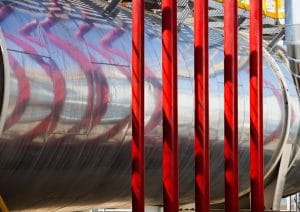 How companies benefit from the use of more advanced electrical systems depends on several different factors. At a minimum, companies can reduce the costs and maintenance needs of their electrical cooling processes by utilizing heat exchangers to keep electrical enclosures properly cooled. However, as the use of more streamlined cooling systems has grown increasingly more prominent in most industries, the benefits that come with them have also had a more profound impact for many companies. This can include making it possible to implement and take advantage of more advanced technologies, such as automated solutions, and turning electrical waste heat into a useful resource for certain processes. (more…)
How companies benefit from the use of more advanced electrical systems depends on several different factors. At a minimum, companies can reduce the costs and maintenance needs of their electrical cooling processes by utilizing heat exchangers to keep electrical enclosures properly cooled. However, as the use of more streamlined cooling systems has grown increasingly more prominent in most industries, the benefits that come with them have also had a more profound impact for many companies. This can include making it possible to implement and take advantage of more advanced technologies, such as automated solutions, and turning electrical waste heat into a useful resource for certain processes. (more…)
Why More Modern Technologies Rely on Heat Exchangers
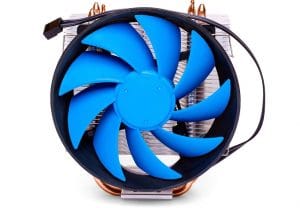 Before companies can effectively implement any new technology into their workflow, they have to know that it will prove beneficial to their overall efficiency and productivity. For many modern applications, the use of advanced heat exchangers is essential to providing these benefits. This is one reason why more modern technologies rely on heat exchangers more often than they do older, more cumbersome cooling solutions. By utilizing natural means of transferring waste heat on a consistent and continuous basis, heat exchangers can effectively provide the low-cost, high-performance cooling that helps make modern technologies more efficient and advantageous. (more…)
Before companies can effectively implement any new technology into their workflow, they have to know that it will prove beneficial to their overall efficiency and productivity. For many modern applications, the use of advanced heat exchangers is essential to providing these benefits. This is one reason why more modern technologies rely on heat exchangers more often than they do older, more cumbersome cooling solutions. By utilizing natural means of transferring waste heat on a consistent and continuous basis, heat exchangers can effectively provide the low-cost, high-performance cooling that helps make modern technologies more efficient and advantageous. (more…)
The Long-Term Advantages of Better Electrical Cooling
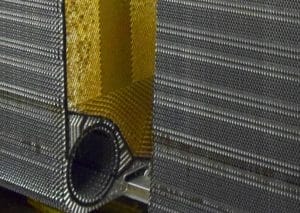 The efficiency and effectiveness of heat exchangers and other modern electrical cooling solutions are the basis for several of their most important advantages. For example, many companies can immediately benefit from more reliable and cost-effective electrical cooling processes when they upgrade older, more conventional systems to modern heat exchangers. While these benefits and savings can be significant, they become even more so the longer companies rely on more efficient thermal management solutions, and the more applications they upgrade with advanced heat exchanger technology. (more…)
The efficiency and effectiveness of heat exchangers and other modern electrical cooling solutions are the basis for several of their most important advantages. For example, many companies can immediately benefit from more reliable and cost-effective electrical cooling processes when they upgrade older, more conventional systems to modern heat exchangers. While these benefits and savings can be significant, they become even more so the longer companies rely on more efficient thermal management solutions, and the more applications they upgrade with advanced heat exchanger technology. (more…)
Are Heat Exchangers Really Friendlier to the Environment?
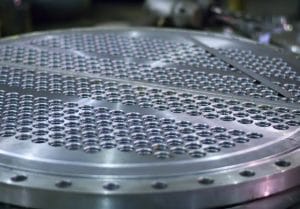 There are often more aspects to a company’s overall environmental footprint than the things that are most noticeable. For example, the direct impact of chemicals or other harmful substances seeping into the air and/or water nearby often leave obvious imprints. However, the totality of this impact can also include the quality of ancillary systems, such as the solutions that a company relies on to keep their electrical equipment properly cooled. Today, we explore how heat exchangers can operate in a way that’s consistently friendlier to the environment around them, and the extent of the impact this has had on many companies’ eco-friendliness. (more…)
There are often more aspects to a company’s overall environmental footprint than the things that are most noticeable. For example, the direct impact of chemicals or other harmful substances seeping into the air and/or water nearby often leave obvious imprints. However, the totality of this impact can also include the quality of ancillary systems, such as the solutions that a company relies on to keep their electrical equipment properly cooled. Today, we explore how heat exchangers can operate in a way that’s consistently friendlier to the environment around them, and the extent of the impact this has had on many companies’ eco-friendliness. (more…)
Saving Costs on Advanced Thermal Management
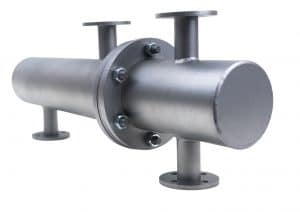 For companies that rely heavily on technology, which is virtually every company these days, the weight of electrical thermal management is one that they’ve always had to carry. With traditional cooling solutions like air conditioners and air compression units, the burden was often a heavy one, involving large investments in energy, constant maintenance and repairs, and more. Today, however, the weight of electrical thermal management is often much easier to bear, thanks largely to more advanced electrical cooling solutions such as heat exchangers. (more…)
For companies that rely heavily on technology, which is virtually every company these days, the weight of electrical thermal management is one that they’ve always had to carry. With traditional cooling solutions like air conditioners and air compression units, the burden was often a heavy one, involving large investments in energy, constant maintenance and repairs, and more. Today, however, the weight of electrical thermal management is often much easier to bear, thanks largely to more advanced electrical cooling solutions such as heat exchangers. (more…)
Creating Value through Eco-Friendly Thermal Management
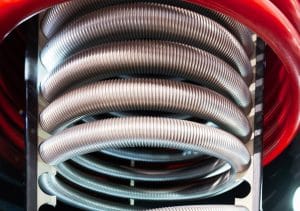 As companies have increasingly turned to more efficient electrical cooling solutions over the years, the benefits they’ve gained from the transition have varied. These often include giving companies the ability to streamline their overheat costs by minimizing their need for energy, as well as boosting productivity by reducing downtime and the need for routine maintenance. In many instances, the enhanced value that heat exchangers provide also include helping companies make their overall operations more eco-friendly. From reducing energy consumption to utilizing more eco-friendly cooling fluids and natural heat transfer methods, heat exchangers have been highly valuable in helping companies lower their environmental footprints. (more…)
As companies have increasingly turned to more efficient electrical cooling solutions over the years, the benefits they’ve gained from the transition have varied. These often include giving companies the ability to streamline their overheat costs by minimizing their need for energy, as well as boosting productivity by reducing downtime and the need for routine maintenance. In many instances, the enhanced value that heat exchangers provide also include helping companies make their overall operations more eco-friendly. From reducing energy consumption to utilizing more eco-friendly cooling fluids and natural heat transfer methods, heat exchangers have been highly valuable in helping companies lower their environmental footprints. (more…)







